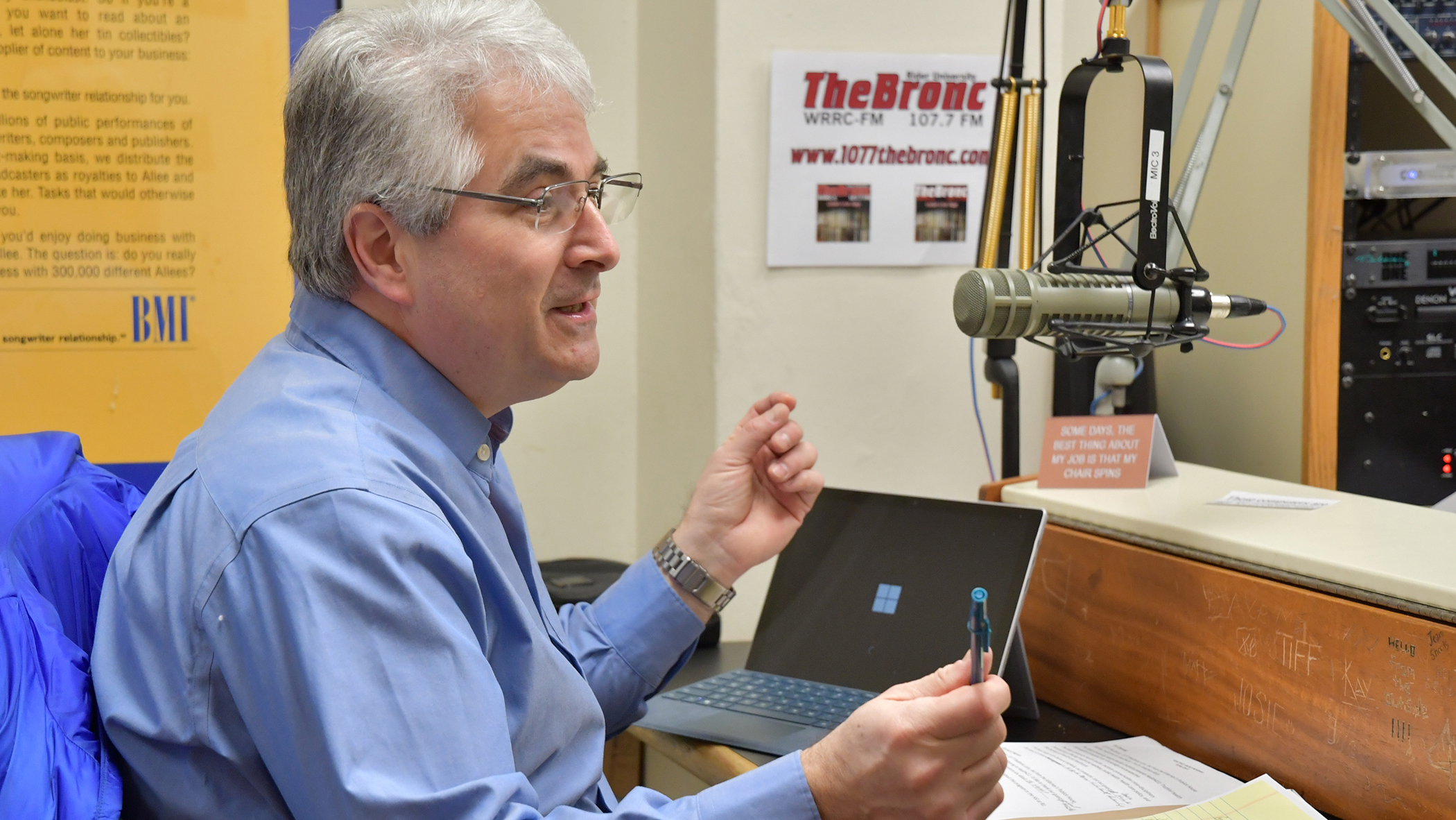Friday, Mar 8, 2019
'Health 411,' hosted by Dr. Jonathan Karp, airs each Sunday on 107.7 The Bronc
by Adam Grybowski
Millions of people suffer from the flu each year, with tens of thousands dying from causes related to the viral infection, according to the Centers for Disease Control and Prevention. To protect against the flu, the CDC unequivocally states the single best measure is to receive an annual seasonal flu vaccine.
Still, among all adults, flu vaccination coverage in the U.S. last year stood at only 45 percent.
Fear and misinformation contribute to the unwillingness to receive the treatment. Some believe that the vaccine will actually make you sick rather than prevent illness.
"That's absolutely impossible because the flu vaccine is a dead virus," said Dr. Jim Riggs, a Rider University biology professor who studies immunology, in a wide-ranging conversation about vaccines last September on the radio show "Health 411." "Vaccines are a controlled primary exposure to some foreign material. They will not make you sick."
"Health 411" debuted last year on 107.7 The Bronc, Rider’s student-run radio station, as a resource of truthful health information for listeners. Also available as a podcast, it is presented by Rider’s Health Studies Institute and airs every Sunday at 11 a.m. About 20 shows have aired so far, with subjects ranging from vaccines to health insurance to preventative medicine.
“Listening to the show will increase people’s knowledge and perspective,” says host Dr. Jonathan Karp, a professor of biology, behavioral neuroscience and health sciences at Rider. “We consciously look for different approaches to health care and I think most people will find it interesting.”
The genesis of the show came about through conversations between Karp and Dr. Jonathan Yavelow, another Rider science professor who is also the director of the University’s Health Studies Institute. The pair envisioned a lighthearted approach in the vein of legendary public radio show "Car Talk" that could still yield insight into serious subjects and support the mission of the Health Studies Institute, which is to contribute to education, innovation and outreach in health-related fields. Karp and Yavelow knew they had the intellectual resources from around the University to sustain a regular show, especially because they are interested in a broad examination of health that touches on the sciences, public health and business. Although "Health 411" began solely with Rider professors as guests, its roster has expanded to include health care professionals and other experts from around the state.
Before the show aired, Karp and producer Diamond McNellis, a senior biology major, recorded a few practice shows. They are both radio novices. Creating a radio program included learning the technical wherewithal as well as the craft of interviewing subject matter experts and the art of being an appealing host.
“Every time you try something new, there’s always anxiety,” Karp says. “You either run from it or embrace it. I embraced it. Before I started, I had to develop a thick skin knowing that I was going to go in, hear constructive criticism and get better.”
Karp volunteers his time to host "Health 411," which includes several hours of interview preparation for every guest. “Over time I have gotten better at doing background research,” he says. “It’s a lot more than showing up and talking to people.”
He says his interdisciplinary background helps. “My approach to science has never been focused in a single traditional scientific discipline,” he says. “Everything I’ve done has been interdisciplinary. I can walk the line between biology and psychology. This helps me to have meaningful conversations with people who approach healthcare from a variety of perspectives..”
Broadly speaking, Karp’s research focuses on stress and health, the way the nervous system and immune system interact with and influence each other. His path to academia was not straightforward. At Colgate University, he selected neuroscience as a major mainly because he wanted to make sure his studies would be challenging enough to justify the cost. It turned out to be a good fit.
“I had become interested in the biological basis of behavior based on what I was observing in college,” Karp says. “The subject fit my way of thinking. And I had to work hard. I knew my family got their money’s worth.” After graduating, Karp says he had one goal in mind: not to return home to live under his parents’ roof. He moved to Baltimore and began working in a research lab among a staff replete with medical degrees and doctorates. “After a year or so, I realized I could do everything they could do,” Karp says. “That’s when I decided to go to grad school.”
He enrolled in Vanderbilt University, where he would go on to earn a doctorate in neuroscience. After his first daughter was born, the stability of teaching lured him from a career solely in research. Karp, who’s originally from New Jersey, returned to his home state in 1997 to join Rider’s faculty after previously working at the University of Rochester Medical Center.
“In the back of my head, I’ve always thought, What can I do to make Rider a better place?” he says. “If 'Health 411' and the Health Studies Institute are successful, it will help make Rider a better place, and I think we’re already having an impact. The show is a great tangible thing that we can offer the community and help contribute to Rider’s reputation as a place where students can receive an excellent science education.”

